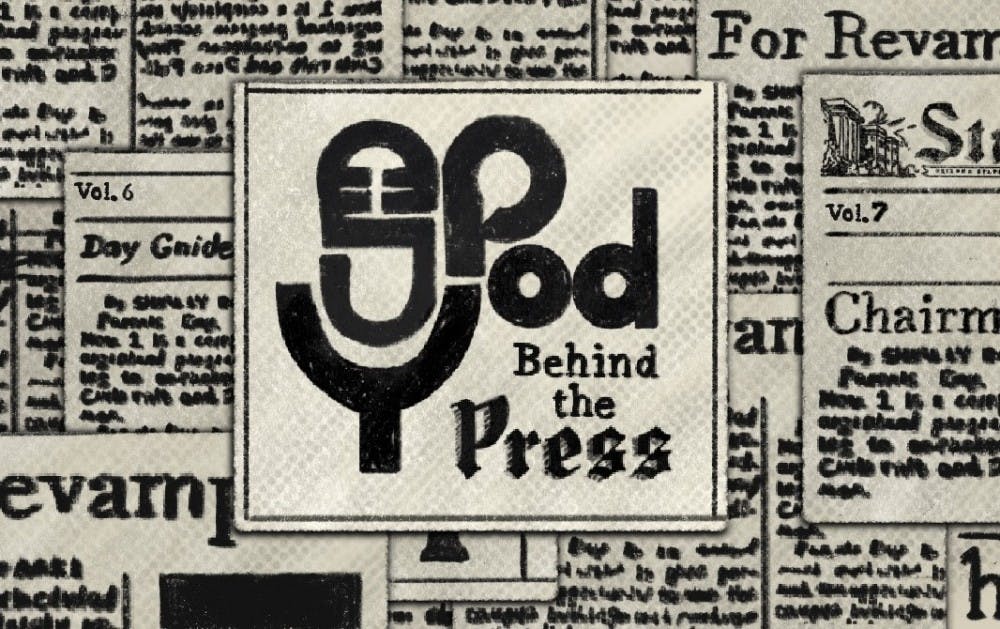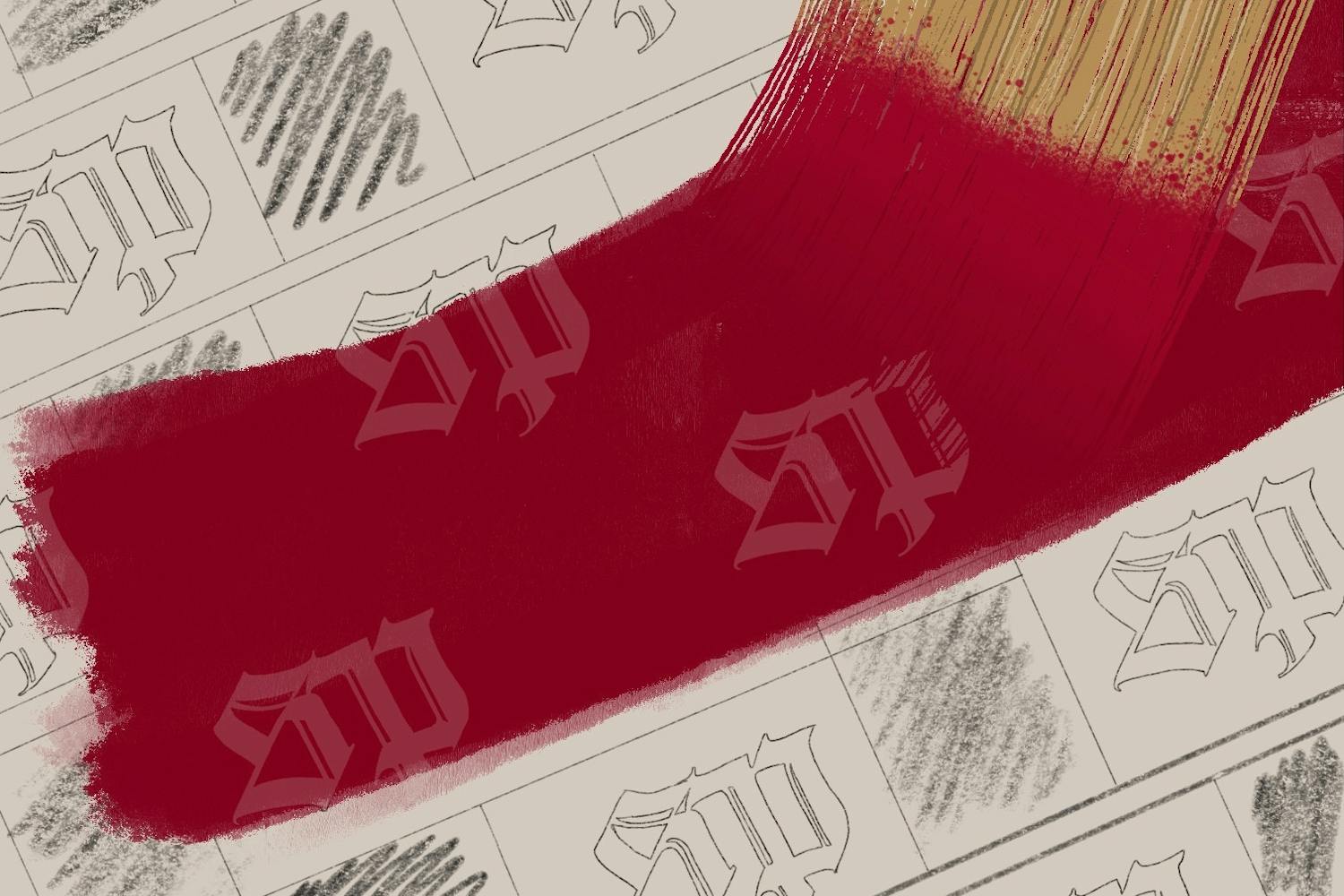Following the resignation of Kurt Volker, U.S. Special Representative for Ukraine and Executive Director of the McCain Institute, student journalists from The State Press broke the story before any major news outlet got to it, in competition with publications such as The New York Times and The Washington Post.
In this inaugural episode of Behind the Press, The State Press managing editors Andrew Howard and Adrienne Dunn, along with Editor-in-Chief Kimberly Rapanut, discuss the process.
Jessica Walter: Being a journalist comes with its challenges including getting news out accurately and in a timely manner for three ASU State Press journalists breaking the story of Kurt Volker's resignation was a challenge which ended in nationwide recognition from some of the most prestigious publications and networks.
What was the story production like especially trying to be the first to break the story?
Andrew Howard: We weren't necessarily like entirely focused on breaking the story first. We obviously wanted to get it out quickly, and it was something we were thinking about but more than anything we wanted to make sure that we did it well and did it right. It was stressful but also, if we wouldn't have been the first ones at least we would have known that we did it well.
Adrienne Dunn: When we were publishing it and posting it on social media, I don't think any of us really expected to be competing with national outlets. We thought it was more of just Arizona stations, and we did not think it was going to go as viral as it did, so it shocked all of us.
Kimberly Rapanut: It's important to recognize also that we try to treat it how we would treat any other story that would come through onto the site. It went through all of the fact-checking and all of the actual behind the scenes production that we would do for any type of story. We never really thought it would take off the way it did. We were just really focused on making sure it had really good quality and it was done in the way that we wanted it to be.
Jessica Walter: What were your emotions like following the publication of the story?
Andrew Howard: I probably have the weirdest situation. I was in a different newsroom when the story broke. I was at the Arizona Republic at my internship. They saw the story online and came and talked to me about it, and I apologized for doing it, and kind of felt bad that I was somewhere else when they didn't have the story. Other than that, my phone started to just blow up. A lot of interactions on Twitter so, I called my parents and my grandma and told them about it.
After that, the rest of the day was just absolutely insane, just getting a bunch of calls and notifications and getting cited in every major news outlet. It was a pretty wild day.
Adrienne Dunn: I published and tweeted the story and right after I tweeted it, I was trying to take a nap and I heard my phone go off like 10 times in a row and that was when I actually realized just how insane it was, the whole experience.
Kimberly Rapanut: I was working at my second job at a restaurant, and I was looking through all of the notifications and people tweeting about us and it wasn't even that they were tweeting about us is that they were tweeting to support student journalists everywhere and us which made it really cool and I was crying in my work freezer in like a really wholesome way because I was just really proud of everyone.
Jessica Walter: What was the most challenging part of the story?
Andrew Howard: The most challenging part was making sure that we had properly explained all of the context without overdoing it. The whistleblower report and complaint in general are very large documents that we have not done a ton of reporting on. It was sort of challenging to make sure that we summarized it in a way that was valuable to our readers without basically saying what every national outlet was saying.
Kimberly Rapanut: International politics isn't something that we cover consistently at The State Press, so trying to really find that local angle and make sure that it was readable for our audience and it was challenging.
Jessica Walter: Since the story broke what has happened in terms of bigger publications and well-known journalists?
Andrew Howard: After Friday night, I hadn't done a whole lot in terms of news. I went on the BBC and I was on a couple local networks, which was crazy, but on Saturday morning, I woke up to messages from The New York Times and The Washington Post, which are publications that I never imagined State Press, especially not me personally, would be in so that was crazy. And then I went on CNN and MSNBC and the news coverage kind of just started to center around our newsroom and our reporting which is something I think we were all really proud of is that we got to spread our audience and bring what we do to a much wider group of people than we've ever been able to before.
Adrienne Dunn: It was insane to see a bunch of journalists we've looked up to for a long time commending our efforts and tweeting at us and then tagging State Press and everything and we gained over 4,000 followers I think on Twitter so it was a really good exposure thing and then to be written about in The Washington Post and The New York Times and stuff like that was just an unreal experience.
Jessica Walter: Makes what does being a part of The State Press mean to you all and how is that change throughout this experience?
Andrew Howard: I would say my feelings about being a part of State Press have not changed at all from this experience. I've always loved State Press and loved every person here and it has been by far the most impactful thing on me and my time in college and had this never happened, I would still be just as excited and just as happy to be here in this newsroom.
Adrienne Dunn: I feel like you can see how proud everyone else in the newsroom is and its really made everyone really excited to be a part of State Press, and it was a huge morale boost and it just amplified everything that we were already feeling to be really proud and really happy to be a part of something like this.
Kimberly Rapanut: I'm always really proud to be a part of The State Press and even after this I'm just as excited as I would be any other day to come in and go to work and that's the really great thing about SP and the experience it can provide to young journalists or anyone looking to get this type of experience out of it.
Jessica Walter: For The State Press, I'm Jessica Walter.
Previous episode(s):
After Hours: Hollywood meets the Downtown Phoenix campus
Reach the reporter at jwalte17@asu.edu and on Twitter @jessicawalterr
Like State Press on Facebook and follow @statepress on Twitter




